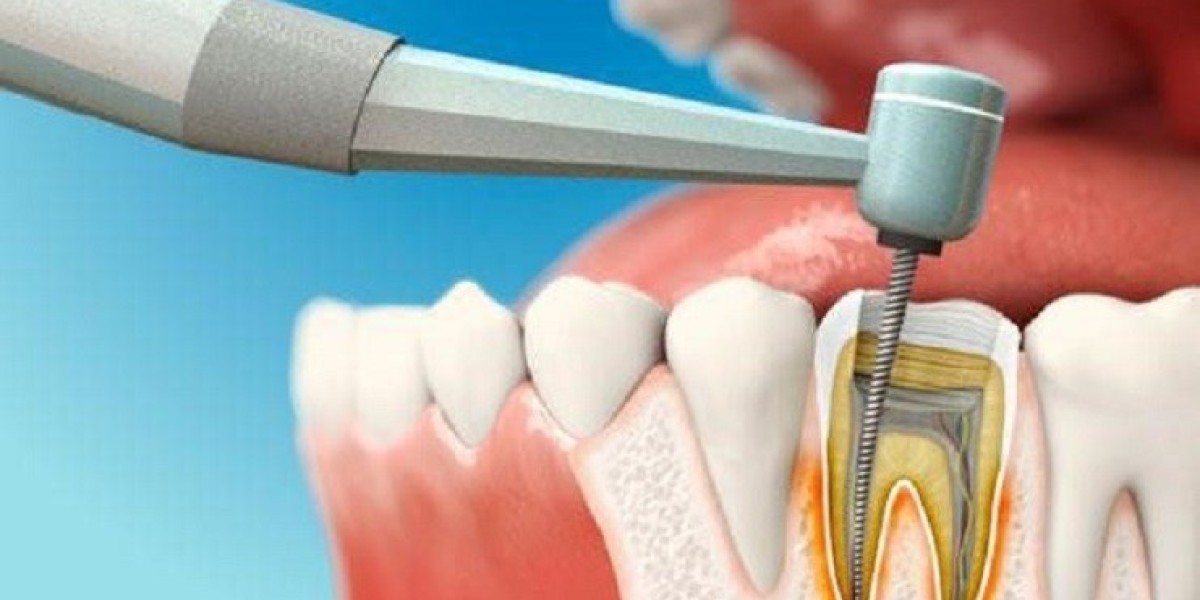Cracked teeth are one of the most common dental problems, often causing severe pain, sensitivity, and risk of infection. Root canal treatment in Dubai, Abu Dhabi, and Sharjah(علاج قناة الجذر في دبي وأبو ظبي والشارقة) has become an essential solution for preserving damaged teeth and restoring oral health. Many patients wonder if this treatment is the only option for cracked teeth and how it compares to extraction. In this article, we explore everything you need to know about root canal treatment, its benefits, risks, and recovery.
What Is Root Canal Treatment And How It Works:
Root canal treatment in Dubai(علاج قناة الجذرفي دبي) is a dental procedure designed to remove infected or damaged pulp from inside the tooth. The pulp contains nerves, blood vessels, and connective tissue, and when compromised, it can cause severe discomfort and infection.
How It Works:
Local anesthesia is administered to numb the tooth.
A small opening is made in the tooth to access the pulp chamber.
Diseased pulp is carefully removed, and the canals are cleaned and shaped.
Canals are disinfected and sealed with a biocompatible material.
The tooth is then restored with a crown or filling to protect it from further damage.
This treatment not only alleviates pain but also prevents tooth loss, making it crucial for maintaining dental health.
Types Of Root Canal Treatment:
Modern dentistry offers several types of root canal procedures, depending on the tooth’s condition:
Conventional Root Canal Treatment: Traditional method using manual or rotary files to clean canals.
Latest Laser Root Canal Treatment Techniques(أحدث تقنيات علاج قناة الجذر بالليز): Uses laser technology for precise cleaning and reduced discomfort.
Direct Pulp Therapy vs Root Canal Treatment: Difference between root canal treatment and direct pulp therapy(الفرق بين علاج قناة الجذر وعلاج العصب المباشر) lies in the extent of pulp removal; direct pulp therapy is less invasive and suitable for minor pulp exposure.
Front Teeth Treatment: Is root canal treatment different for front teeth?(علاج قناة الجذر للأسنان الأمامية: هل يختلف؟) Front teeth usually have simpler canals and require fewer sessions.
Preparation And Aftercare:
Proper preparation and aftercare ensure faster recovery and long-lasting results:
Inform your dentist about medications or medical conditions.
Maintain oral hygiene before and after treatment.
Avoid chewing hard foods until the tooth is fully restored.
Take prescribed painkillers or antibiotics as directed.
Schedule follow-up visits to monitor healing.
Recovery time and number of sessions needed for root canal(مدة التعافي بعد علاج قناة الجذر وعدد الجلسات المطلوبة): Typically, multiple sessions may be required depending on tooth complexity, with full recovery in a few days to weeks.
Ideal Candidate:
Not every patient may be suitable for root canal treatment. Ideal candidates include:
Individuals with cracked, chipped, or severely decayed teeth.
Patients experiencing prolonged sensitivity or pain.
People looking to preserve their natural teeth rather than extraction.
Elderly patients must be cautious: Root canal complications in elderly patients(مضاعفات علاج قناة الجذر عند كبار السن) can include slower healing and increased risk of post-treatment infection.
Risks, Benefits, And Patient Experiences:
Root canal treatment is generally safe, but understanding potential risks and benefits is vital:
Benefits:
Saves the natural tooth and prevents extraction.
Relieves severe toothache and sensitivity.
Reduces the risk of infection spreading to surrounding tissues.
Supports long-term oral health.
Risks:
Post-procedure discomfort or mild pain.
Rare canal perforation or reinfection.
Sensitivity to chewing or temperature changes.
Patient experiences with root canal treatment – is it painful?(تجارب المرضى مع علاج قناة الجذر وهل يسبب ألماً؟) Most patients report minimal pain due to anesthesia and modern techniques. Discomfort after treatment is usually temporary and manageable with over-the-counter pain relief.
FAQs:
How long do root canal results last vs. extraction?(كم تدوم نتائج علاج قناة الجذر مقارنة بالخلع؟) With proper care, a root canal-treated tooth can last a lifetime, often outperforming extraction followed by replacement.
Will I need a crown? Most teeth require crowns to strengthen them after treatment.
Is it safe for elderly patients? Yes, with proper precautions, though healing may be slower.
Can cracked teeth heal without root canal? Minor cracks may not need treatment, but deep cracks usually require intervention.
Conclusion:
Root canal treatment in Dubai(علاج قناة الجذر في دبي) offers a reliable and effective solution for cracked teeth, preserving natural teeth and restoring oral function. With modern techniques like laser-assisted root canals, improved recovery protocols, and careful aftercare, patients can enjoy long-lasting results and minimal discomfort. Understanding the procedure, preparation, and potential risks ensures that patients make informed decisions and maintain optimal dental health for years to come.






